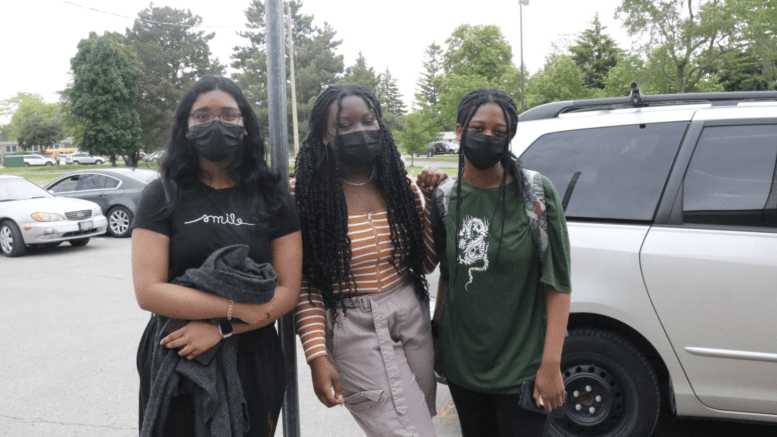Some Scarborough high school students feel the Ontario curriculum isn’t providing enough resources and information about current political issues to help them make an informed voting decision when they turn 18.
“Our high school included politics in our curriculum by having a civics class that teaches the stages and the different types of laws within Canada. However, the topics of discussion aren’t current and don’t inform us on the policies we as students stand for,” said Kevya Iyama, a Grade 10 student at Woburn Collegiate Institute.
Is the Ontario high school curriculum educating students?
There is a stereotype that students don’t like school or enjoy learning about politics. “This is not true,” said Iyama.
“I have always liked attending school — I get to see my friends and learn, which are two things I cherish. I value education and I want to pursue post-secondary education. However, I do feel a lack of preparation from my high school and teachers and that I do not have enough knowledge on world issues, local policies, or basic information on adult living like paying taxes or applying for OSAP,” said Iyama.
Another Scarborough student says she is learning the basics in her civics class, but there isn’t enough time spent on talking about current issues.
“We aren’t learning about our government’s policies in this day and age, and our teachers are not informing us of current issues, so I feel unaware of what’s going on in Toronto as of right now in regards to politics,” said Luxmy Vijitharan, a Grade 10 student at Woburn Collegiate Institute.
“If our premiers, or members of specific parties, attend our high schools more often and explain what it is they are trying to accomplish, then more students and youth would feel that their voices are being heard, along with knowing the intentions of politicians in Ontario,” said Vijitharan.
J. Smith, who has asked that his real name not be used, has been teaching high school in the Greater Toronto Area for 29 years. He taught civics from 2009-2012. With his experience in retaining material, building lesson plans, and connecting with students during class, Smith believes that civics should remain a compulsory credit.
“Any knowledge is better than none,” said Smith.
Put their political knowledge to the test
Iyama was surprised that she was never informed by the school faculty, teachers, or students that there was a provincial election on June 2.
“I didn’t think we would have a whole lesson plan, but I did assume at least (one) teacher would have talked about some general information on the election. My family and social media is how I receive information on the government,” said Iyama. “I receive articles from my family and I find actively checking my socials is beneficial because even in civics class I don’t feel we are given any current information to where I know what leaders are saying on a weekly basis.”
The civics and citizenship course was implemented in all Ontario secondary schools in September of this year. Civics and citizenship remain a mandatory part of the Ontario curriculum.
The Toronto Observer asked four students attending Woburn Collegiate Institute who have completed the civics and citizenship course the following questions to test their political knowledge:
- Who is in power right now?
- Who is the premier of Ontario?
- Can you name the main six political parties and the leaders?
- Do you know some policies that the parties stand for?
The first question was the only one answered correctly by each student.
“We don’t hate politics so we try to learn in our free time, but clearly we don’t know enough which is alarming as I feel I wouldn’t know who to vote for in the future because I don’t know what they represent,” said Iyama.


